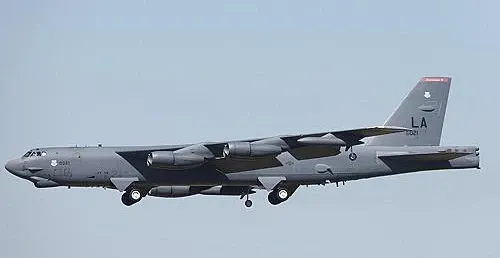Is North Korea Right to Criticize the US and Japan's Nuclear Alliance?

Synopsis
Key Takeaways
- North Korea criticizes the US-Japan nuclear alliance.
- Claims this justifies their military enhancements.
- Extended deterrence raises security concerns.
- Joint military exercises provoke North Korean responses.
- The situation highlights regional security dynamics.
Seoul, Aug 1 (NationPress) On Friday, North Korea criticized the United States and Japan for transforming their partnership into a menacing "nuclear" coalition, asserting that this development legitimizes its own military enhancements.
The Korean Central News Agency (KCNA) published the denunciation in a piece authored by a North Korean expert on international relations, referencing last year’s elevation of US-Japan discussions regarding extended deterrence to the ministerial level and the two nations' recent reaffirmation of their extended deterrence strategies.
Extended deterrence pertains to the US' declared assurance to utilize its comprehensive military resources, including nuclear weapons, to safeguard its allies, as reported by Yonhap news agency.
North Korea also highlighted the recent visit of Japanese officials to a base housing US B-52 strategic bombers and the execution of a joint military exercise simulating nuclear scenarios.
"This indicates that the US-Japan military alliance is evolving into a perilous 'nuclear alliance'," the article stated, accusing Japan of attempting to "embark on a path of invasion ... with US support."
The piece claimed that the US is exacerbating the regional situation, driving it toward a "bitterly precarious" state by positioning nuclear strategic resources at naval and air bases in Hawaii, Guam, and Japan, as well as conducting joint military exercises with its "junior allies."
The article further charged Japan with trying to challenge nuclear powers through its military coalition with the US, labeling it as "an exceptionally hazardous endeavor" and warning it could "precipitate a nuclear catastrophe globally."
"What must not be ignored is the reality that Japan is ... creating a situation where it is evident that the target of the US-Japan nuclear alliance is none other than the DPRK and other neighboring nations," the text asserted.
DPRK stands for the Democratic People's Republic of Korea, the formal designation for North Korea.
The article proclaimed that these elements illustrate the nation’s augmentation of its "self-defensive" capabilities, aimed at establishing equilibrium in the region and protecting its territory from the "ever-growing threats posed by enemy nations," which is "entirely justified."









